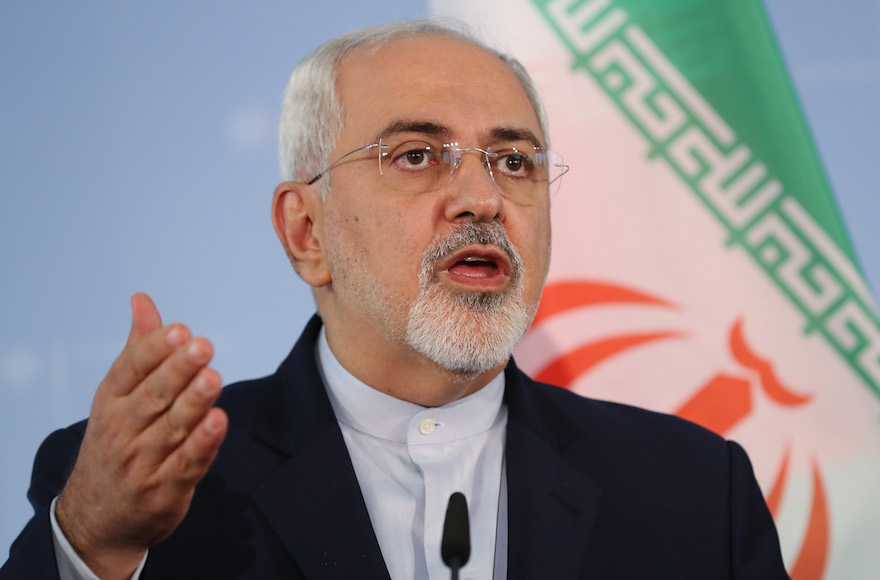After the US assassination in Baghdad of Iranian general Qassem Suleimani, Berlin, London and Paris issued a fraudulent joint letter on Sunday, January 12, 2020, denouncing Iran as a threat to peace and demanding it respect the 2015 nuclear treaty Washington repudiated in 2018.
The statement, reeking of hypocrisy, serves as a warning amid the danger of all-out war in the Middle East.
One cannot halt the spiral of imperialist demands, threats, provocations and murder by appealing to the conscience of capitalist governments like Washington’s European allies. Anti-war sentiment in the working class, rising hand in hand with growing strikes and social protests against austerity and police repression, must take a politically independent form.
In their letter, the European powers pass over in total silence the extrajudicial murder of Suleimani in gross violation of international law, mass protests in the Middle East against his killing and the three decades of US-European wars in the Middle East since the 1991 Gulf War in Iraq.
These wars killed or wounded millions and turned tens of millions into refugees.
Instead, they denounce Iran for “destabilising” the Middle East. They write, “Recent events have highlighted Iran’s destabilising role in the region, including through the IRGC and Al-Qods force.
Our commitment to the security of our allies and partners in the region is unwavering. We must address—through diplomacy and in a meaningful way—shared concerns about Iran’s destabilising regional activities, including those linked to its missile programme.”
After the murder of Suleimani, the Iranian regime announced that it would increase the number of centrifuges it operates to enrich uranium.
It did not, however, take any overt action to build nuclear weapons—it neither expelled International Atomic Energy Agency, IAEA, inspectors present in Iran, nor repudiated the nuclear Non-Proliferation Treaty, which it has signed.
Nonetheless, the letter of Berlin, London and Paris portrays Iran as a nuclear threat, while merely expressing “regret” that Washington scrapped the 2015 treaty. It claims the treaty “plays a key role” in keeping Tehran from obtaining nuclear weapons.
It demands Iran “reverse all measures inconsistent with the treaty; we call on Iran to refrain from further violent action or proliferation; and we remain ready to engage with Iran in order to preserve the stability of the region.”
This letter is a political fraud. As EU foreign ministers held an emergency Middle East summit Friday in Brussels, they made off-the-record statements directly contradicting the arguments in the letter Berlin, London and Paris issued two days later.
EU officials know that, in the conflict with Tehran that Washington has orchestrated since Trump repudiated the 2015 nuclear deal, it is not Tehran that seeks escalation.
A “senior EU diplomat” told Reuters that Iran aims to calm the crisis: “Iran’s desire to prevent the crisis from escalating has bought us some time, it has the effect of cooling this down just a little.”
Another “EU diplomat” said Iranian nuclear weapons are not an imminent danger: “Iran has not set any targets or deadlines when it comes to uranium enrichment targets, so that gives us time.”
Finally, an unnamed French diplomat said Paris is at least as worried about US as about Iranian actions: “We need to coordinate and maximise the effect everybody has in trying to de-escalate what the Iranians do, but it’s the same for the Americans.”
That is to say, European claims that Iran is destabilising the Middle East, and that it is urgent to confront Iran’s nuclear weapons program, are a pack of lies.
One must ask why European officials are issuing empty denunciations of Iran that they know to be false, and staying silent on the danger of war posed by Washington, the world’s most heavily-armed nuclear power?
It is not ties of unbreakable friendship that bind the European powers to Washington’s propaganda on Iran.
In fact, the Middle East has been the scene of rising conflict between Washington and its European “allies” ever since the Stalinist regime’s dissolution of the Soviet Union in 1991 deprived them of a common enemy. While EU powers joined US wars in Iraq, Afghanistan, Libya and Syria when it suited their imperialist interests, they clashed with Washington over post-Gulf War sanctions on Iraq, the illegal 2003 US invasion of Iraq, and now US sanctions on Iran.
Read more at NYTimes







